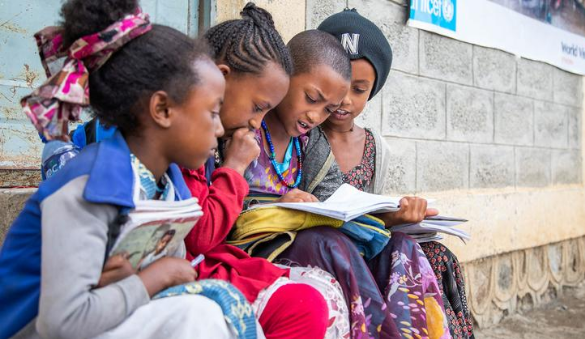
ADDIS ABABA – Ethiopia must strengthen leadership commitment to prioritize education in order to overcome the learning crisis that threatens its goal of achieving quality education in alignment with the Sustainable Development Goals (SDGs), researchers suggested.
Addis Ababa University Associate Professor of Education, Belay Hagos (PhD) told The Ethiopian Herald that by age three, over half of Ethiopian children cannot read any text, and by age ten, 90% are unable to read even simple texts.
Using a methodology called the “political economy of learning,” Belay’s team traced the root causes of this crisis through a systematic series of questions. The analysis revealed a vicious cycle—poor teaching practices stem from underprepared teachers, who often enter the profession due to low capability and lack of alternatives.
He indicated that low salaries and inadequate resource allocation further deter high-performing students from pursuing teaching careers, perpetuating the cycle.
Belay emphasized that political leadership and public accountability are key to breaking this cycle. Without strong political will and resource mobilization, including education-specific taxes, Ethiopia risks falling deeper into learning poverty, he warned.
Meanwhile, a longitudinal study conducted in 2024 by Young Lives Ethiopia, an international study on childhood poverty, has provided additional insight into the crisis. Young Lives’ Principal Investigator, Prof. Tassew Woldehanna, stated that the study, which tracks 3,000 Ethiopian participants from childhood to adulthood, highlighted the impacts of recent challenges, including the COVID-19 pandemic, conflict, inflation, and higher education reforms.
While secondary education completion rates have improved, tertiary enrollment has plummeted from 18% in 2016 to 14% in 2023, Tassew said.
Tassew noted that recent reforms aimed at enhancing quality may have contributed to this decline. His findings underscore the urgent need for balanced policies that ensure access to higher education while maintaining standards.
Both researchers agree that political leadership holds the key to revitalizing Ethiopia’s education system. By prioritizing education and mobilizing resources, leaders can foster equitable access and improve learning outcomes, they added.
BY YOHANES JEMANEH
THE ETHIOPIAN HERALD SATURDAY 3 MAY 2025





